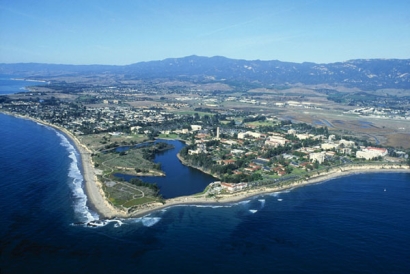About cns–ucsb
The NSF Center for Nanotechnology in Society at UCSB serves as a national research and education center, a network hub among researchers and educators concerned with societal issues concerning nanotechnologies, and a resource base for studying these issues in the US and abroad. The Center addresses education for a new generation of social science and nanoscience professionals, and it conducts research on the historical context of the nano-enterprise, on innovation processes and global diffusion of nanotech, and on risk perception and the public sphere. CNS-UCSB researchers address a linked set of social and environmental issues regarding the domestic US and global creation, development, commercialization, production, consumption, and control of specific kinds of nanoscale technologies.

The intellectual aims of CNS-UCSB are twofold: to apply knowledge of human behavior, social systems, and history to identify societal implications of nanotechnologies; and to deepen basic knowledge about the global human condition in a time of sustained technological innovation through close examination of the emergence of nanotechnologies. These aims motivate research from many theoretical and methodological perspectives, provide the basis for industry-labor-government-academic-NGO dialogue, and organize the mentoring of graduate, undergraduate, and postdoctoral students. The Center draws on UCSB’s renowned interdisciplinary climate to integrate the work of nanoscale engineers and physical and life scientists with social scientists studying nanotechnology in society. Close ties with the internationally prominent nanoscale researchers connected with the California NanoSystems Institute and with social science research centers at UCSB focused on relations among technology, culture, and society are enhanced by social science collaborators at UC Santa Cruz, UC Berkeley, the Chemical Heritage Foundation, Duke University, Rice University, SUNY Levin Institute, and SUNY New Paltz in the US, and Cardiff University, UK, University of British Columbia, Canada, University of Edinburgh, UK, University of East Anglia, UK, and a number of institutes and centers in China and East Asia.
The CNS-UCSB began its operations in January 2006. In 2007-2008, the Center has moved from start up mode to full scale implementation and production of a mixed portfolio of interdisciplinary research, education, and engagement activities that address issues of equity, global distribution of technological benefits and risks, and possibilities for social and environmental sustainability of new technologies. The CNS-UCSB is situated at the nexus of all four of the University of California at Santa Barbara’s main strengths identified in its long range plan: international and global studies; new technology; environment; and a renowned capacity for interdisciplinarity. The CNS-UCSB also conducts comparative research on successful methods for public participation in dialogue about nanotechnologies’ futures in the US and abroad, and engages directly with the multi-local communities who are and will be involved in nanotechnology through work, consumption, and environment. The CNS aims to use these institutional resources to create a genuine learning community of diverse participants who can pool their knowledge for the simultaneous benefit of society and technology.
The Center aims to disseminate both technological and social scientific findings related to nanotechnology in society to the wider public and to facilitate public participation in the nanotechnological enterprise. It does this through public engagement in dialogue between academic researchers from diverse disciplines with regulators, educators, industrial scientists, and policy makers, as well as community-based organizations and ngos. The Center’s education and outreach programs, which are central to its mission, include a diverse range of students and participants, and engage industry, government, and NGO partners.










